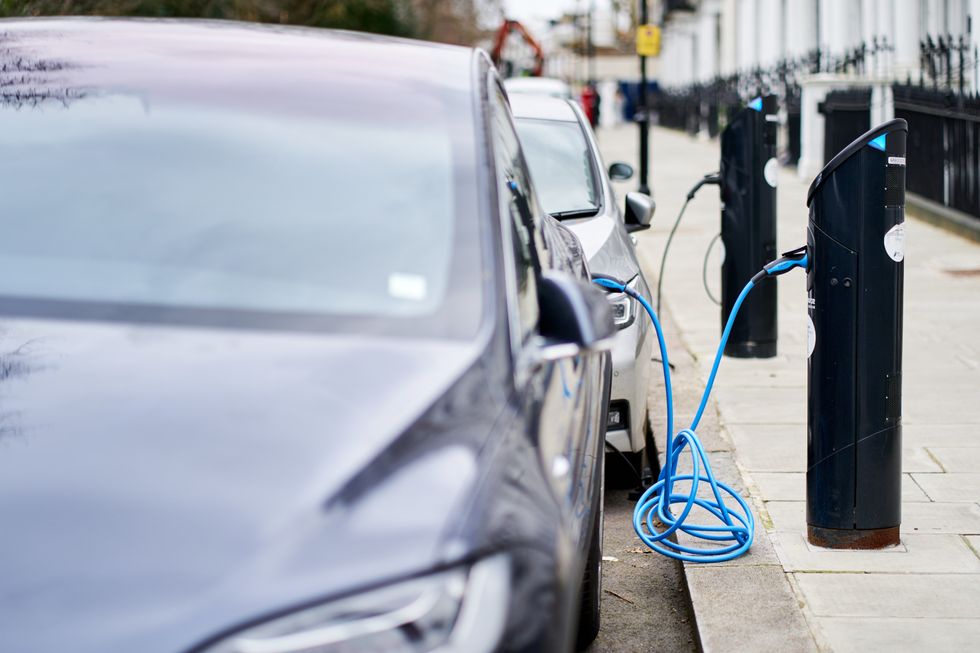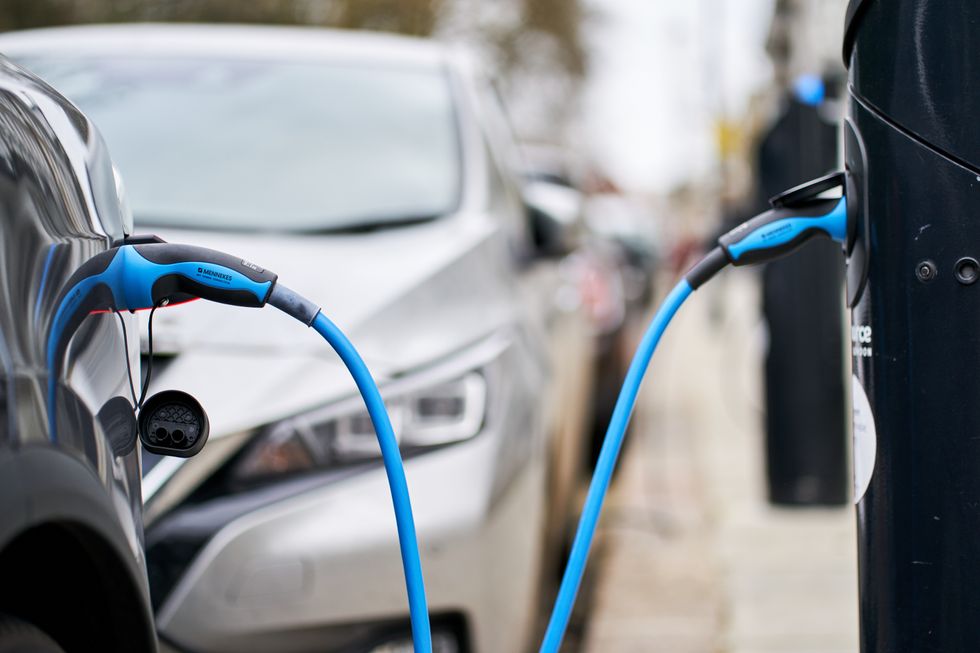How do we supercharge the adoption of electric cars and bring us closer to a net zero future?
One expert told GB News that major changes are needed to boost interest in electric cars
Kevin Brundish, CEO of Dutch battery start-up LionVolt, spoke to GB News about how the UK Government can increase support for electric vehicles
Don't Miss
Most Read
Governments across Europe are implementing policies to encourage the uptake of electric vehicles in order to lower emissions and meet their net zero goals.
It was recently announced that the Dutch Government is cutting motor vehicle tax by 75 per cent for emission-free cars in 2025 to encourage uptake.
At the end of 2023, around three per cent of cars in the UK were battery electric, and just seven per cent were hybrid electric. This is, however, a significant increase from 2018, when battery electric cars only accounted for one per cent of new car registrations.
Despite this increase, EVs only make up a small proportion of the cars on the road today. There needs to be a large boost in uptake otherwise there’s a danger that EV adoption could slow further.
Do you have a story you'd like to share? Get in touch by emailing motoring@gbnews.uk
 PA |
PA | The UK hopes to have 300,000 charging stations by 2030
What needs to change to accelerate EV adoption?
Price is but one factor that is preventing consumers from making the switch to electric. Policies including tax cuts alongside lower battery prices should mean EVs will become more affordable over time.
The driving range of EVs is also seen as a significant factor for adoption, with nearly 50 per cent of consumers claiming they’d need a higher real-world range to consider switching from ICE vehicles to electric cars, according to a recent survey by GoCompare.
As well as range, charging is also a factor that is hindering EV uptake. This comes in two forms: charging times and public charging availability.
The UK Government has an ambition to increase EV charging points by 10-fold to reach 300,000 stations by 2030.
Alongside this, they have pledged £1.6billion to further enhance the EV charging infrastructure.
Improving the time to charge would also reduce congestion around public charging stations, and improve the EV driver experience.
The solution to these concerns of both charging speed and driving range does in fact lie in plain sight and can be addressed through innovation around the batteries in EVs.
The adoption of new technology could be key to far greater EV uptake at a scale that could set a steep new trend.
What’s next for batteries?
The key to overcoming the challenges limiting the shift towards electrification is creating batteries and cells that charge quickly, and have extended range and performance than those currently in use today. Central to these developments are advances in lithium-ion batteries.
In terms of range, the science revolves around energy density – how much energy can be packed into each battery for a given weight.
To achieve high density, we are seeing a shift to more advanced products from materials currently used in today’s cells. New anode technologies, including silicon and lithium, will increase range and can be added in to the existing supply chain.
Moreover, to get a significant increase, the production process involves switching the flammable liquid in old-style batteries with a solid, non-flammable material - solid-state batteries.
LATEST DEVELOPMENTS:
- Petrol and diesel drivers targeted in new pollution crackdown with new air quality sensors rolled out
- Headlight glares could cause ‘unsafe’ road conditions amid UK-wide call for urgent driving law changes
- Sadiq Khan’s Ulez scrappage scheme hailed as 'major victory' but only half of drivers got payouts
 PA |
PA | Solid-state batteries could be key for the continued rollout of electric vehicles
Obvious benefits to drivers include higher performance, faster charging, intrinsically higher standards of safety, longer battery life, and radically lowered carbon footprints.
This could therefore mean driving ranges upwards of 500 miles could be a reality, to the delight of many EV drivers, and this could be the step change we need for mass adoption.
Overall, innovations in the battery space have the potential to address consumer demands for extended range and faster chargers, while also offering a safer, more sustainable alternative to traditional batteries.
This could lead to an increase in EV adoption, lowering emissions and bringing us closer to a net zero future.
Kevin Brundish, CEO of Dutch battery start-up LionVolt










